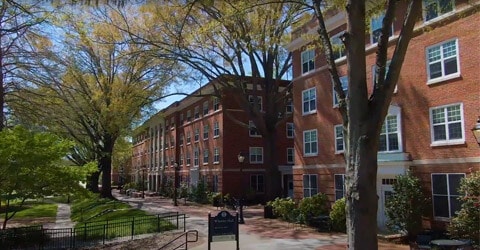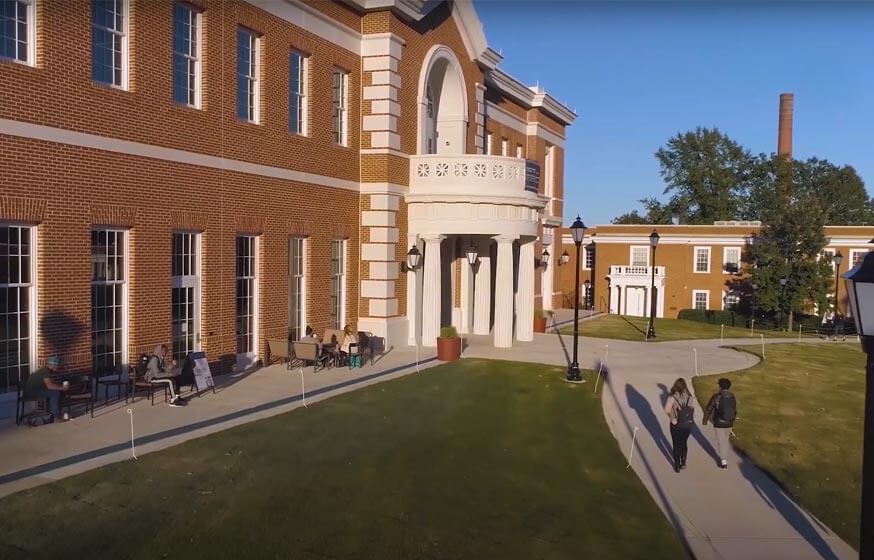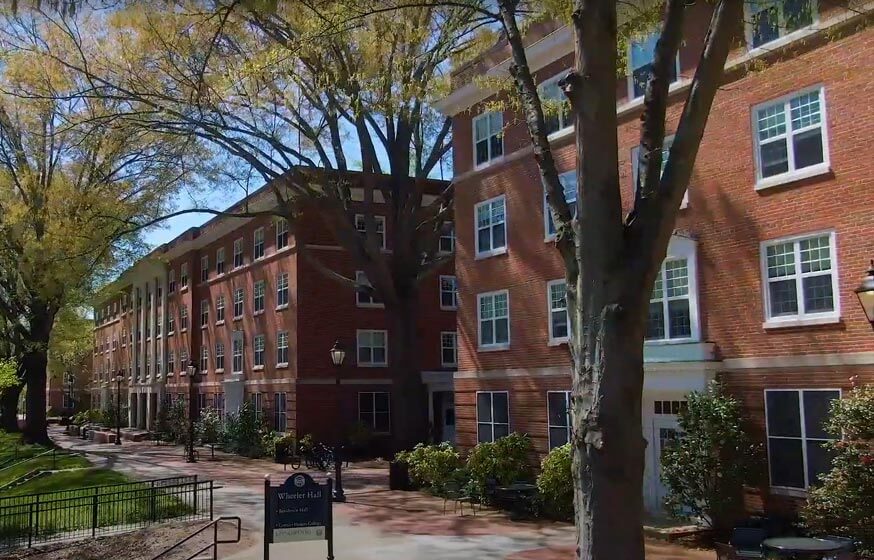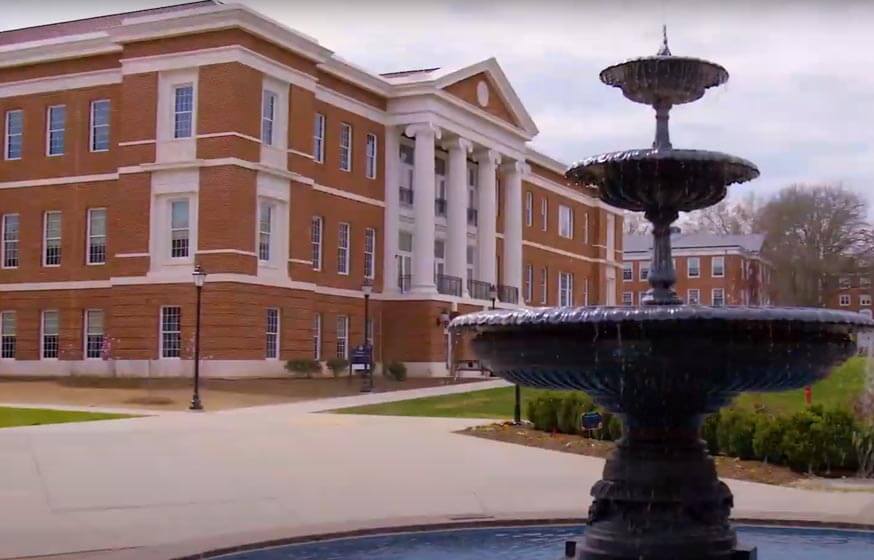Get Matched With Online Colleges
Once you’ve decided you’re going to go to Longwood University, you might decide to take a trip to Farmville, Virginia where the school is located. First, you’ll notice that the town itself is small even though the university is located here. Both the town and university are far from other larger communities, which means you’ll have to stick to shopping in town or on campus. However, you should be able to find everything you need here, as well as restaurants where you can visit with friends and study for your finals.
Search All Programs
Overview of Longwood University
While you’re in town, look for The Inn on the Avenues. This is a bed and breakfast where your family can stay when they come to visit you. When you return to campus, you’ll see campus buildings are laid out alongside one or two streets that go through the center of the school. Before long, you’ll know just where everything is located.
The school’s population is 4,400+ and the student-to-faculty ratio is 13 to 1. LU is a public university that awards undergraduate and master’s degrees, along with post-master’s certificates. They also offer both dual credits and credits for passing scores on your AP exams.
General Information
| School Type | Public |
|---|---|
| Campus Setting | Town: Remote |
| Campus Housing | Yes |
| Student Faculty Ratio | 13:1 |
| Graduation Rate | 66% |
| Year Founded | 1839 |

Student Enrollment
Total Students4,468
3,859
609
Undergraduate Student
Male 1,235
Female 2,624
Graduate Student
Male 195
Female 414
Explore Map
Top Rankings For Longwood University
Admissions
APPLICATIONS4,431
ACCEPTANCE3,988
Acceptance Rate90%
Enrollment 798
| Admissions | |
|---|---|
| Application Fee | $50 |
| High School GPA | Required |
| High School Rank | Recommended |
| High School Transcripts | Required |
| College Prep Courses | Required |
| Recommendations | Recommended |
| SAT/ACT | Required |
| TOEFL (Test of English as a Foreign Language) | Required |
| Application Deadline | February 1 |
| Common Application Accepted | No |
Tuition Cost & Financial Aid
Going to college is not an inexpensive effort. You’ll pay for tuition, room and board, books, supplies, and other expenses. If you’re an out-of-state student, your tuition will be much higher: $13,520 for in-state students and $29,480 for out-of-state students. Together, the total cost can be much higher than just tuition.
The cost of your attendance after your financial aid is applied is called average net price. For Longwood University, this average was $19,636 in a recent academic year. Depending on your parents’ income, the amount of financial aid you are eligible for will shift, and thus how much you pay.
- If your family earns under $30,000 you’ll pay around $14,704.
- If your family earns between $48,001 and $75,000 you’ll pay around $18,294
- If your family earns over $110,001 you’ll pay around $24,243
About 90% of the freshman class at Longwood qualifies for financial aid. Of that percentage, 829 students received grants or scholarships averaging $7,455 and 691 students received institutional grants and scholarships averaging $4,573.
| Average net price | 2018-2019 |
|---|---|
| Net Price | $19,636 |
| Average Total Aid | $7,455 |
| Students Receiving Financial Aid | 90% |
| Room & Board | $12,076 |
Sticker Price
- Tuition In-State - $24,243
- Tuition Out-of-State - $29,480
- Books and Supplies - $1,350
- Room & Board - $12,076
- Other - $2,418
Academics
You’re going to stay at Longwood University after your freshman year? This will make you part of the retention rate, which measures the percentage of first-time students who return for their sophomore year. At LU, this is 75%, showing that the majority of students who attend feel that their needs are met here and don’t feel the need to transfer to another school.
Looking at graduation rate shows a relatively favorable view as well. The 4-year graduation rate is 50% and the 6-year rate is 66%. While the 4-year rate is a bit low, it’s not so far off the average national rate, and the improved 6-year rate is about average.
Let’s say that you look at your new class schedule and realize that two of your classes conflict with each other. If you visit an advisor, they may suggest that you drop your current section for one class and add a new section for evening classes, or you might be able to add a new section for online learning. LU offers both evening courses and online options, so you should be able to work some flexibility into your schedule.
The top majors offered here are: business, management, marketing and related support services; liberal arts and sciences, general studies and humanities; health professions and related programs; homeland security, law enforcement, firefighting and related protective services; and communication, journalism and related programs.
Retention
Rate
4 year
Graduation
Rate
6 year
Graduation
Rate
Student Population Total
Student Population 4,468
3,859
609
Most Popular Programs & Majors
(# of Diplomas Awarded by Subject)
| All Business Majors | 142 Total Graduates / 15% |
|---|---|
| Business Administration and Management, General | 142 Graduates |
| Liberal Arts and Sciences, General Studies and Humanities | 140 Total Graduates / 14% |
| Liberal Arts and Sciences/Liberal Studies | 140 Graduates |
| Health Professions and Related Programs | 119 Total Graduates / 12% |
| Registered Nursing/Registered Nurse | 66 Graduates |
| Audiology/Audiologist and Speech-Language Pathology/Pathologist | 33 Graduates |
| Therapeutic Recreation/Recreational Therapy | 16 Graduates |
| Athletic Training/Trainer | 4 Graduates |
| Homeland Security, Law Enforcement, Firefighting and Related Protective Services | 65 Total Graduates / 7% |
| Criminal Justice/Safety Studies | 65 Graduates |
| Communication, Journalism, and Related Programs | 64 Total Graduates / 7% |
| Speech Communication and Rhetoric | 64 Graduates |
| All Other Diplomas | 46% |
Outcome & Salary
The hope is that you take off your graduation cap and gown, put them away, and start your first job within two weeks to a month. While making that a reality takes a lot of hard work, graduate’s early-career salaries sit at around $48,200 and their mid-career salary really jumps, rising to $84,900. So, in all likelihood, that hard work will prove to be worth it.
The 4-year cost of education for students who graduate from Longwood University averages $78,544. This won’t affect your salary earning potential, but it does allow you to figure out the possible return on investment (ROI) from your education. Graduate’s 10-year potential salary is $562,380 and their 20-year potential is $1,411,380. Not bad! After deducting your cost of education, your 10-year projected ROI is $483,836 and your 20-year ROI is $1,332,836.
High school graduates who don’t go to college earn an average national salary of $38,792. Their 10-year projected income is $387,920 and their 20-year projected income is $775,840.
| Graduates Salary | |
|---|---|
| College Grads Early Career Salary | $48,200 |
| College Grads Average Salary | $56,238 |
| College Grads Mid Career Salary | $84,900 |
| Return on Investment (ROI) | |
|---|---|
| 10 Year Salary Earnings Potential | $562,380 |
| 20 Year Salary Earnings Potential | $1,411,380 |
| Cost of Education (Net Price) 4 Year | $78,544 |
| 10 Year Projected ROI | $483,836 |
| 20 Year Projected ROI | $1,332,836 |
| No College Education Salary Comparison | |
|---|---|
| National Average Salary | $38,792 |
| 10 Year Projected Income | $387,920 |
| 20 Year Projected Income | $775,840 |
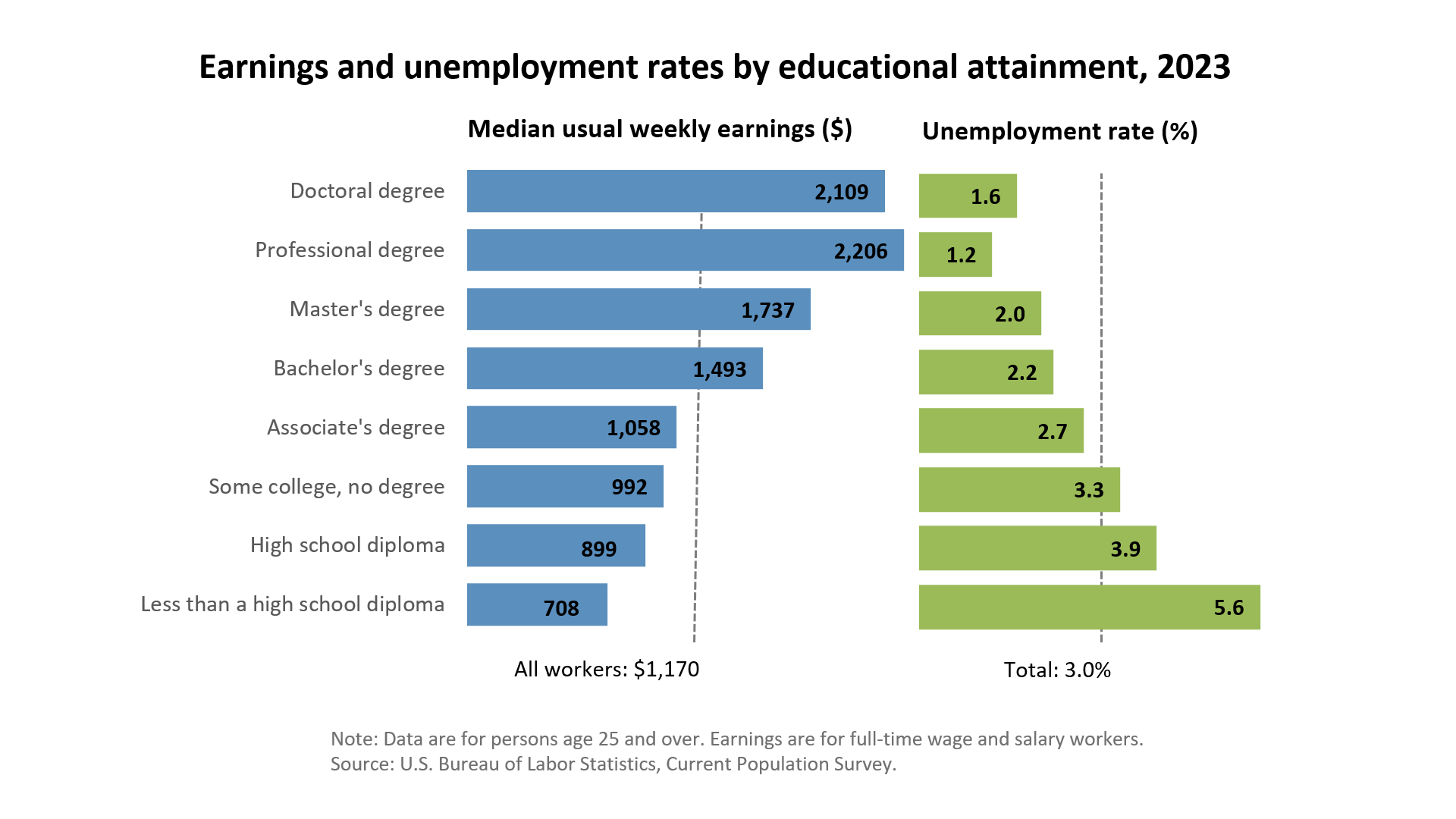
Related Top College Resources












